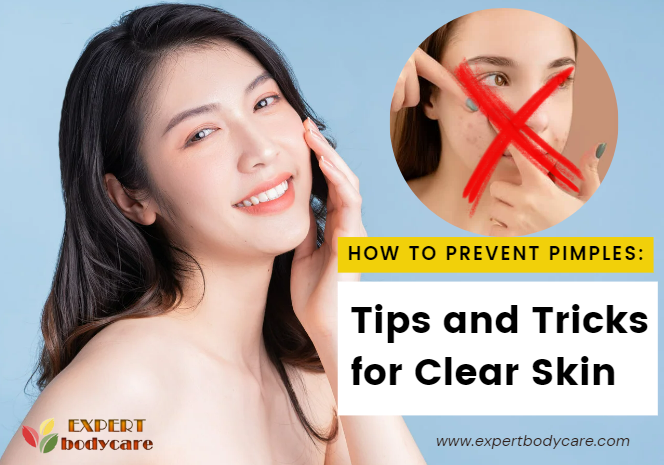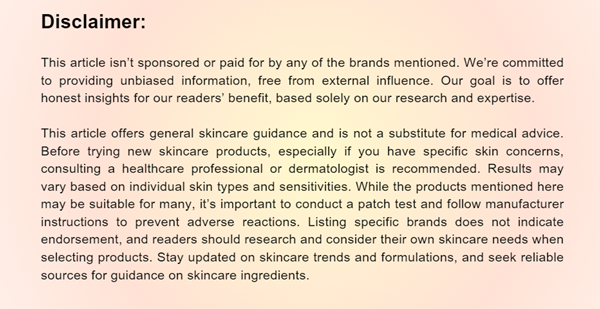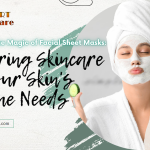
Pimples are one of the most common skin problems that affect people of all ages, especially teenagers and young adults. They are caused by the clogging of hair follicles with oil, dead skin cells, bacteria, and other substances. Pimples can appear anywhere on the skin, but they usually occur on the face, chest, back, and shoulders. Knowing effective tips to prevent pimples is crucial in managing this condition and maintaining clear, healthy skin.
Pimples can be annoying, and painful, and sometimes leave scars on the skin. They can also affect a person’s self-esteem and confidence. Fortunately, there are many tips to prevent pimples and keep the skin healthy and clear.
Essential Tips to Prevent Pimples
1. Wash your face twice a day with a mild cleanser and warm water.
Use a mild cleanser and warm water twice a day, preferably in the morning and evening, to properly cleanse your face skin. This procedure keeps the skin clean and encourages a healthy complexion by removing debris, oil, and pollutants.
2. Keep your hair clean and away from your face.
Oil, dirt, and hair products can transfer from your hair to your skin and clog your pores. Wash your hair regularly and use non-comedogenic products (do not cause pimples). If you have bangs or long hair, tie them back or use a headband to keep them off your face.
3. Avoid touching, picking, or popping your pimples.
This can spread bacteria, cause inflammation, and worsen your acne. It can also lead to scarring and infection. Instead of squeezing your pimples, use a topical treatment that contains ingredients such as benzoyl peroxide, salicylic acid, or tea tree oil. These can help dry out the pimples and reduce redness and swelling.
4. Limit your exposure to the sun and use sunscreen.
The sun’s ultraviolet (UV) rays can damage your skin and worsen your acne. They can also cause premature aging, wrinkles, and skin cancer. To protect your skin from the sun, wear a hat, sunglasses, and clothing that covers your skin. Use a broad-spectrum sunscreen (protects against both UVA and UVB rays), water-resistant, and has an SPF of at least 30. Apply it generously and reapply it every two hours or more often if you sweat or swim.
5. Exercise regularly and manage your stress levels.
Exercise can improve your blood circulation, boost your immune system, and help you release endorphins (feel-good hormones). It can also help you sweat out toxins and impurities from your skin. However, shower after exercising and wear clean clothes to prevent clogging your pores with sweat and bacteria. Stress can also trigger or worsen acne by increasing the production of hormones such as cortisol and adrenaline. These hormones can stimulate the skin’s sebaceous glands (oil-producing glands) and cause inflammation. To reduce stress, try to relax, meditate, breathe deeply, listen to music, or do something you enjoy.
6. Eat a healthy diet and drink plenty of water.
What you eat and drink can affect your skin’s health and appearance. Some foods that may help prevent pimples include fruits, vegetables, whole grains, nuts, seeds, lean proteins, and probiotics (good bacteria). These foods can provide your skin with vitamins, minerals, antioxidants, fiber, omega-3 fatty acids, and other nutrients that can help fight inflammation, infection, and oxidative stress.
Some foods that may worsen acne include dairy products (such as milk, cheese, and yogurt), refined carbohydrates (such as white bread, and pasta), sugary foods (such as candy), fried foods (such as french fries), processed meats (such as bacon), alcohol (such as beer), caffeine (such as coffee), chocolate (such as dark chocolate).
These foods can increase the production of insulin (a hormone that regulates blood sugar levels) which in turn can stimulate the sebaceous glands in the skin to produce more oil. Water is essential for keeping your skin hydrated, smooth, and elastic. It can also help flush out toxins and waste products from your body. Drink at least eight glasses of water a day and avoid drinks that can dehydrate you, such as soda, energy drinks, and alcohol.
By following these tips to prevent pimples, you can keep your skin clear and healthy. However, if you have severe or persistent acne that does not improve with home remedies, you may need to consult a dermatologist (a doctor who specializes in skin conditions). A dermatologist can prescribe medications or treatments that can help you get rid of your pimples and prevent scarring.



